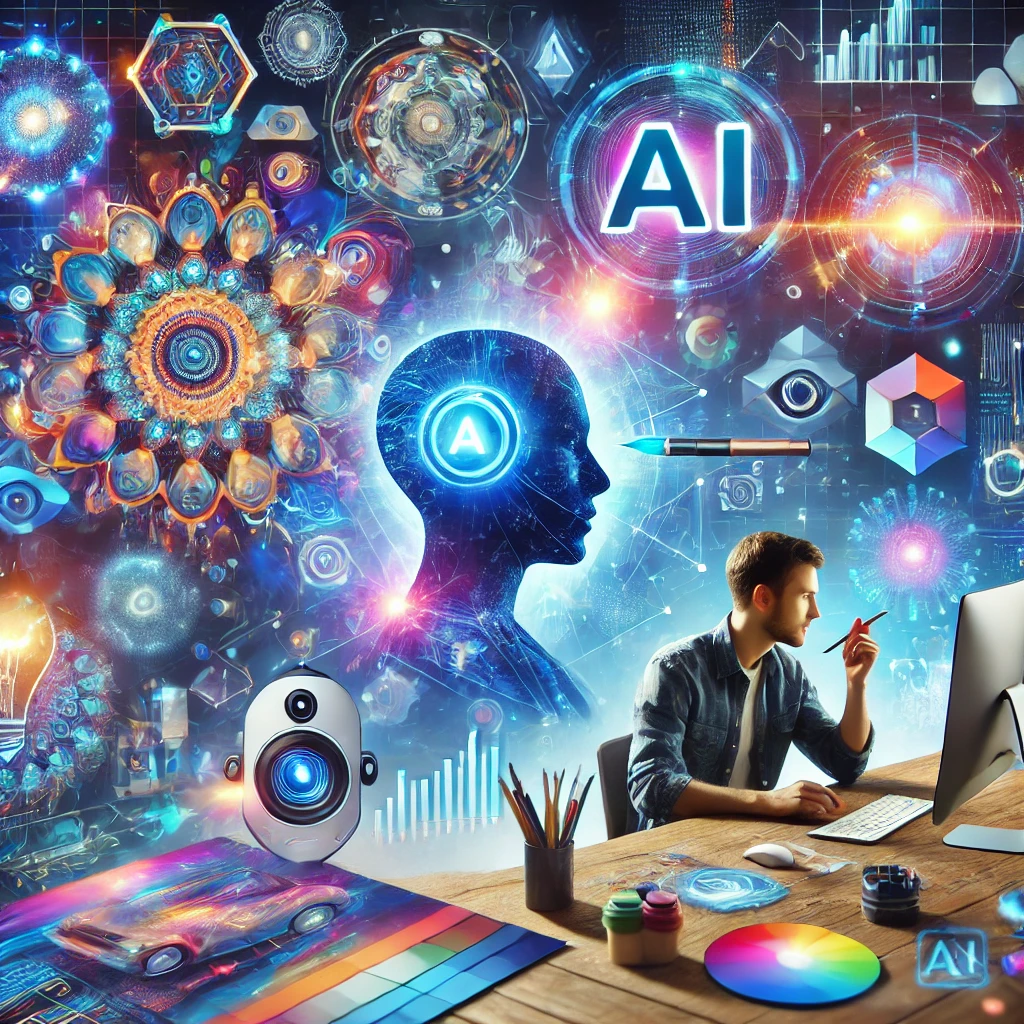Artificial intelligence is at the forefront of technology innovation and is only set to bring in sweeping changes across various industry sectors, from healthcare services to financial services and transport to entertainment. The more dominant the development of these technologies, the more important the ethical considerations are.
Ethic concerns on AI span from biased algorithms and violations of privacy to automatic decision-making and independent judgement that finally question jobs and values within society. This paper raises the ethical challenges, examines current frameworks of developing responsible AI, and suggests ways that innovation on AI can be aligned with ethical principles and social values.
One should literally know how to cross the ethical landscape of AI.
AI systems are primarily aimed at processing vast amounts of data and recognizing patterns therein, executing any other tasks that would otherwise have huge human involvement. Exactly as it has proved to date, it holds a huge potential for the improvement of efficiency, productivity, and quality of life. However, such potential raises concerns that should be attended to in relation to ethics.
One of the crucial issues is algorithmic bias: AI systems potentially mirror biases found in training data or, so to say, programming choices.
For example, the algorithms associated with facial recognition are poor for individuals with dark skin. This raises concerns regarding mitigation strategies for bias and diversified representation at a very basic level within AI developer teams. The next major ethical issue with AI is privacy regarding the acquisition, storage, and utilization of personal data. For the AI systems to boot and ‘train’ themselves by learning from huge volumes of data, therefore, it becomes a great concern to secure and respect the safety of the data, especially if it will involve consent and probably unauthorized access through the eventual misuse of the data.
Innovating with data means that individual privacy rights should be centrally positioned to drive trust while sustaining ethics in deployment across many industries through AI.
Accountability and transparency in the processes of AI decision-making are particularly important for building trust among people and thus holding them accountable for their actions.
Most AI systems end up as black boxes full of algorithms such that little can be understood about how decisions are made or devolved accountability regarding the output of algorithms developed in such companies. Mechanisms of algorithmic transparency, explainable AI, and techniques auditability frameworks would provide an insight into this moment of decision and hence make algorithms accountable and provide recourse in case of mistakes or bias characterizing the outcome.
Other very major steps in AI’s responsible development and deployment find their parallels in ethics-based standards and regulatory frameworks across countries. Such effort by the organizations like the IEEE, the European Commission’s High-Level Expert Group on AI and Partnership on AI is an integral way forward for the push towards embracing fairness, transparency, accountability, and inclusion of its principles and guidelines for ethical practice in AI.
Those principles guide in designing and deploying artificial intelligence technologies out of respect for human rights, promotion of well-being at the level of a society, and mitigation of harm.
ai and human-centric design: an ethical a human-centered approach in the development ethical ai puts values, dignity, and well-being into the forefront.
The argument above flows from the view that the reflection of human values within the designs of AI systems in their development ensures the active involvement of stakeholders, themselves comprising end-users, policymakers, and affected communities, through the whole process. This is a participatory approach undertaken not only within the early-stage discovery of the feasible ethical concerns of AI technologies but also in proving first among these whether such new technologies are adjusted according to societal values and norms.
Moreover, weaving ethical reflection into the governance frameworks of AI is a task that demands collaborative efforts by policymakers, industry players, and civic societies. One can organize a multisector stakeholder dialogue or create advisory boards on the same, toward major discussions on ethical AI practices for knowledge exchange and development of guidelines related to the responsible deployment of systems across sectors.
Ethical Dilemmas of Autonomous AI Devices The development of stand-alone systems, be they autonomous vehicles or drones, gives rise to an entirely new range of special ethical challenges regarding issues of decision-making and responsibility inasmuch as concerns regarding the issue of safety. Now take, for instance, the following case: autonomous cars will be making highly difficult ethical decisions, such as making trade-offs between the safety of the passengers and that of pedestrians during emergencies.
Throughout this process of technological advancement, these ethical challenges will have to be coped with by collaborative focus emanating from the dimensions of engineering, ethics, policy, and law to finally result in the design of proper ethical frameworks, guidelines, and regulation controls covering the fielding and operation of artificial intelligence systems in the real world of human endeavor. All, after all, if autonomous AI is involved, transparency and accountability would quite understandably imperatively have to be there so that public trust in the reliability and safety of such autonomous AIs may not get eroded. Stringent, testing and validation, fail-safe mechanisms, clearly demarcated lines of responsibility, and liability for the ethical governance or oversight of autonomous AI technologies would, therefore, need to be inculcated. Mitigating the Risks of AI in Work and Society
It raises quite a few issues on AI’s influence on the future of employment and society as a whole: jobless workers, economic disparities, and precisely in what way people should share the automatic benefits of AI. Although AI on the one hand should be understood as the automatization of routine activity, increasing productivity; it will create new jobs, such as workers employed on data surveys and information-gathering for their needs, and deteriorative reskilling workers and their job equality, mainly concerning wage policies on the labor market.
These big ethical questions could only be answered by proactive policies and measures: boosting education, programs that developed skills throughout a lifetime, and incentives by way of policy for more inclusive economic growth—ones where AI-driven opportunities could be fairly distributed. Ethical considerations require societally-sensitive AI to be dedicated to bigger concerns, such as protection against surveillance, social manipulation, and the erosion of privacy. It also carefully balances pure innovation with responsibilities in the regulatory framework that protect basic rights, ensure fairness, and adopt accountable practices that minimize risk in very sensitive domains, such as law enforcement, health care, or governance. Ethical AI: Towards Good practice and Recommendation Success in embedding ethical consideration in AI requires responsible innovation approaches to work collaboratively with stakeholders in identifying ethical considerations at stages of development, deployment, and governance. Some of the highlighted recommendations include the following:
1. Ethics by Design: The very inscription of considerations of ethics into the AI design itself at the very beginning. 2. Transparency and Explainability*: Develop mechanisms of transparency, accountability, and interpretability in AI decision-making processes.
Bias Detection and Mitigation*: Develop tools and techniques that would indentify and mitigate algorithmic biases in AI systems to make the decisions fair and just case by case.
4. Data Privacy and Security*: Have strict data governance frameworks, and this would add another layer of overhead towards the mentioned safeguarding of individual privacy rights—prevention of the risks of unauthorized access and probable misuse of the data. 5. *Engagement of many stakeholders*: Engage policymakers, industry players, CSOs, and academia in a participatory process in their journey toward coming up with ethical guides, standards, and regulatory frameworks as it pertains to AI. 6. *Constant Monitoring and Evaluation*: AI systems should be continuously monitored to identify any ethical issues, ensure conformity with the ethical standards, or simply to learn from change in society’s expectations and norms themselves. 7. Sensitization and creating awareness Conducting much-needed awareness to the public on AI Technologies, their ethical implication, and pressing needs for ethics governance to be conducted on AI in order to build trust in and ensure the responsible adoption of the same. Conclusion So much promise holds it regarding innovation and enhancing efficiency in solving complex problems. However, underpinning optimistic visions of AI are three mainstays: ethical principles, responsible governance, and human-centered design. Essentially, most of the ethical challenges in question revolve around questions of bias, transparency, accountability, and its social impact. It may well be that, if all this is properly dealt with, it can inscribe a foundation of trust and fair play on the part of AI technology as it makes further very useful contributions to human welfare and general prosperity all over the world. Making ethics the forefront of Artificial Intelligence development and deployment is a moral requisite and a criterion of predictability to sustain the future, considering innovations continue to surge towards integrating it across diverse sectors.

 Cart is empty
Cart is empty 
Leave A Comment